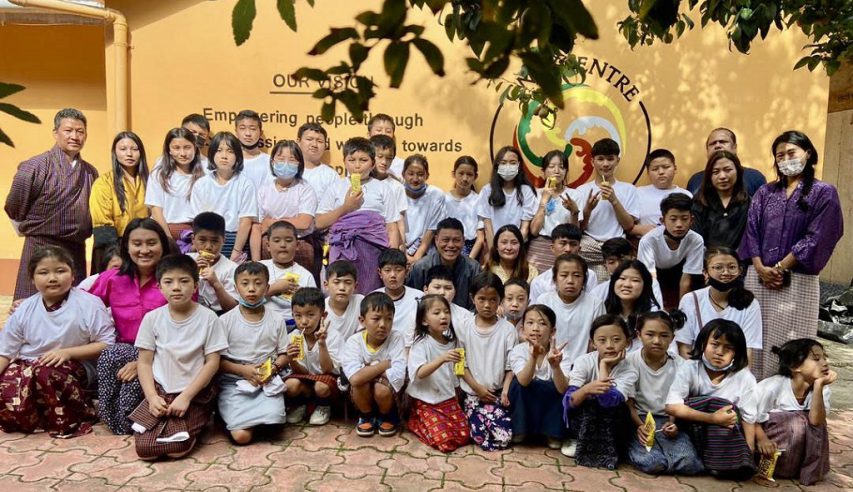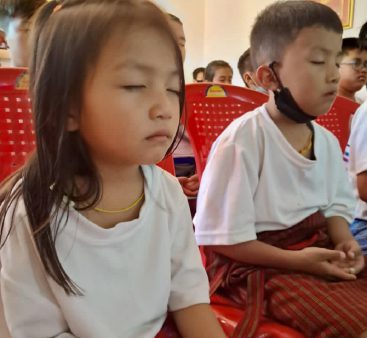Understanding GNH values through Music and Culture
September 6, 2022
17th August 2022: Forty participants aged eight to twenty from the Music for All camp led by the Music of Bhutan Research Centre (MBRC) visited GNH Centre Bhutan to learn about GNH, and the importance of culture as a primary pillar. It was also an opportunity as a Civil Society Organization, to network and collaborate with others to demonstrate collaboration and promote local partnerships.

The children also shared their own definitions of happiness and reflected on their happiest moments in life. Four short animated videos were screened for a better understanding of Gross National Happiness. Through the initiative, children were able to see how GNH is present in their daily lives and a few of them shared how music is a big part of our culture. They understood the responsibility they carry in preserving traditional music and how it is directly linked to one of the pillars of the GNH. Moreover, the children also understood how they are following and contributing to the GNH domains like time use, education, psychological wellbeing and community vitality.

The hour-long session was very interactive with a question and answer session towards the end of the presentation. The participants actively shared their views and thoughts on the topics presented. One of the participants said “The program provided insightful knowledge on the Gross National Happiness and through this session I can now relate with happiness at the individual level to a national level and how much our leaders do for us. Moreover, I understood why the GNH is important to Bhutan for sustainable development.”
Mr. Sonam Dorji, the Director of MBRC shared that the presentation was informative and it was important for the children to understand their role in preserving Bhutan’s cultural heritage as future citizens.
About the Music of Bhutan Research Center:
The MBRC was founded to document, preserve, and promote the traditional music of Bhutan. The MBRC aims to break new ground by professionally researching, recording and archiving the many musical traditions of the country’s diverse regional, linguistic and ethnic groups, and by documenting the finest living master musicians in performance and interviews. Such aims and activities of the MBCR directly relate to the pillar of preservation and promotion of culture whereby both the Centre’s share a common goal in promoting Bhutanese values.
